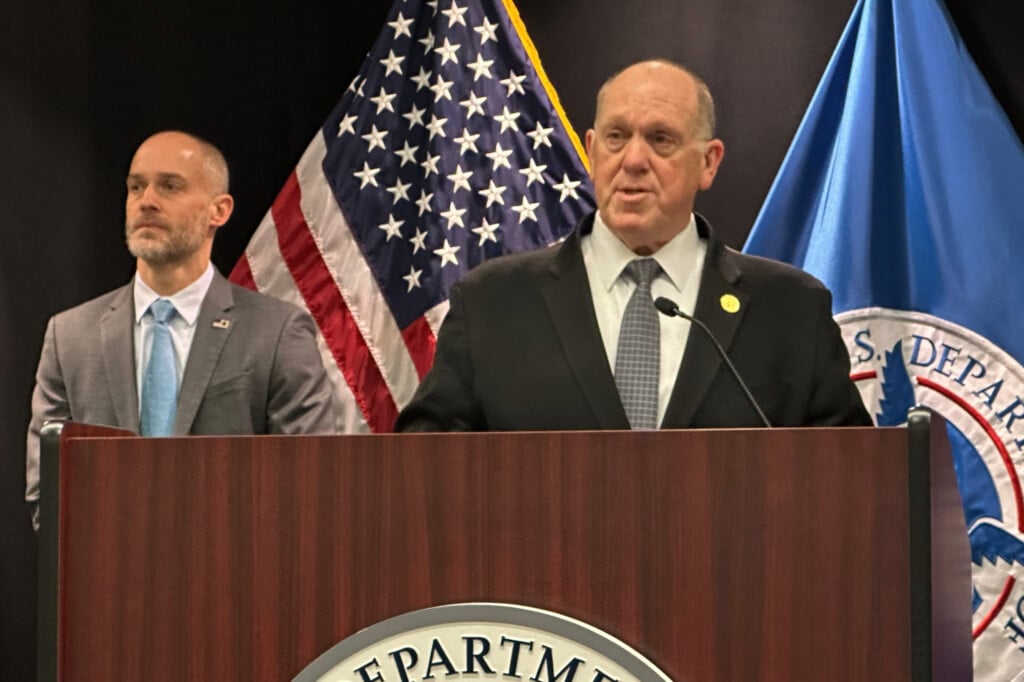Federal government on brink of first budget shutdown in almost seven years
Democrats and Republicans are angrily blaming each other for a looming federal government budget shutdown, refusing to budge from their positions.
They appear unable to find agreement or even negotiate as hundreds of thousands of federal workers could be furloughed or laid off.
The partisan standoff over health care and spending is threatening to trigger the first U.S. government shutdown in almost seven years at 12:01 a.m. Wednesday, October 1.
To avoid it, the Senate would have to pass a House measure that would extend federal funding for seven weeks while lawmakers finish their work on annual spending bills.
A vote on the bill, along with a Democratic alternative, was scheduled for early evening. But a resolution appeared far off as tempers flared, increasing the odds of a shutdown by the hour.
Senate Democratic Leader Chuck Schumer, D-N.Y., said Republicans are trying to “bully” Democrats by refusing to negotiate on an extension of health care benefits and other priorities.
“It’s only the president who can do this. We know he runs the show here,” Schumer said this morning, after a bipartisan White House meeting the day before yielded little progress.
“Republicans have until midnight tonight to get serious with us,” Schumer said.
President Donald Trump and his fellow Republicans say they won’t entertain any changes to the legislation, arguing that it’s a stripped-down, “clean” bill that should be noncontroversial.
Senate Majority Leader John Thune. R-S.D., said Republicans “are not going to be held hostage” by the Democrats’ demands. The GOP-led House is on a weeklong recess, unavailable for immediate votes even if the Senate does find bipartisan agreement.
It was still unclear if either side would blink before the deadline.
Republicans hold a 53-47 majority in the Senate and would likely need at least eight votes from Democrats to end a filibuster and pass the bill with 60 votes, since Republican Sen. Rand Paul of Kentucky is expected to vote against it.
A handful of Democrats said they were still deciding how to vote, holding out for a last-minute compromise. Thune said he is “hoping there are Democrats out there who are reasonable and understand what’s at stake here.”
The last shutdown was in Trump’s first term, from December 2018 to January 2019, when he demanded that Congress give him money for his U.S.-Mexico border wall. Trump retreated after 35 days — the longest shutdown ever — amid intensifying airport delays and missed paydays for federal workers.
Millions of people could face higher insurance premiums if the health care subsidies expire at the end of the year. Congress first put them in place in 2021, during the COVID-19 pandemic, to expand coverage for low- and middle-income people who purchase health insurance through the Affordable Care Act.
Democrats say they want the subsidies immediately extended. They have also demanded that Republicans reverse the Medicaid cuts that were enacted as a part of Trump’s “big, beautiful bill” this summer and for the White House to promise it will not move to rescind spending passed by Congress.
Thune has pressed Democrats to vote for the funding bill and take up the debate on tax credits later. Some Republicans are open to extending the tax credits, but many are strongly opposed to it.
In rare, pointed back-and-forth with Schumer on the Senate floor Tuesday morning, Thune said Republicans “are happy to fix the ACA issue” and have offered to negotiate with Democrats — if they will vote to keep the government open until Nov. 21.
The bipartisan meeting at the White House on Monday was Trump’s first with all four leaders in Congress since retaking the White House for his second term. Schumer said the group “had candid, frank discussions” about health care and the potential for health insurance costs to skyrocket once expanded Affordable Care Act tax credits expire Dec. 31.
Democrats are in an uncomfortable position for a party that has long denounced shutdowns as pointless and destructive, and it’s unclear how or when it would end. But party activists have argued that Democrats need to do something to stand up to Trump.
Some groups called for Schumer’s resignation in March after he and nine other Democrats voted to break a filibuster and allow a Republican-led funding bill to advance to a final vote.
Schumer said then that he voted to keep the government open because a shutdown would have made things worse as Trump’s administration was slashing government jobs. He says now that he believes things have changed, including the passage this summer of the massive GOP tax cut bill that reduced Medicaid.
The stakes are huge for federal workers across the country as the White House told agencies last week that they should consider “a reduction in force” for many federal programs if the government shuts down. That means that workers who are not deemed essential could be fired instead of just furloughed.
Either way, most would not get paid. The nonpartisan Congressional Budget Office estimated in a letter to Iowa Sen. Joni Ernst on Tuesday that around 750,000 federal workers could be furloughed each day once a shutdown begins.
(Copyright 2025 The Associated Press. All rights reserved. This material may not be published, broadcast, rewritten or redistributed.)







